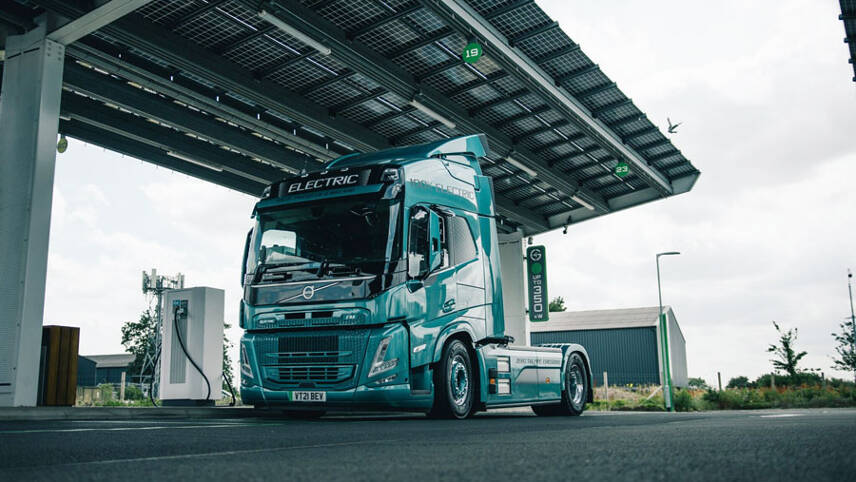Register for free and continue reading
Join our growing army of changemakers and get unlimited access to our premium content

Image: Gridserve/Volvo
Spearheaded by electric vehicle (EV) charging hub developer Gridserve, the Electric Freightway project will run through to 2030 and has garnered support from 33 firms.
They include automakers like Volvo and fleet operators such as Sainsbury’s and Amazon, as well as organisations which own land that could be used for charging infrastructure, like service station operator Moto. Participants are already testing or operating more than 140 e-HGVs collectively.
Within the first two years of the seven-year project, Gridserve is aiming to install more than 200 high-power chargers suitable for e-HGVs across the UK’s network of motorways. It will also support partners with the electrification of at least 10 commercial depots.
All power used to supply the new chargers will be from renewable generation based within the UK.
Technology improvements
It is not only the number of chargers that need addressing, but their average charging speeds. Truck drivers will need access to chargers that can add significant range within the 45-minute breaks they are mandated to take every 4.5 hours.
Currently, the best chargers on the market are 350kW-capable, but the project will aim to test and deploy 1MW-capable models within two years.
Gridserve chief executive Toddington Harper said: “The big issue so far has been people saying you need an electric truck to have the same 500-mile range as a diesel vehicle.
“To do so, that would mean you’d need an enormous battery, which would mean you wouldn’t have the ability to transport the same amount of payload. However, that mindset changes if you’re able to charge that battery very quickly.”
The project will also focus on new technologies that can make HGVs “work harder and smarter”, such as digital tools that optimise energy consumption and automatic charging features at charging bays.
The Electric Freightway project will require at least £100m of investment, Gridserve has stated. The UK Government has already pledged £62.7m of support.
A portion of this Government funding was confirmed this week as part of a broader £200m innovation funding allocation for the low-carbon HGV sector from Westminster coffers.
The Government’s target for HGV decarbonisation is that all sales of new models which are not zero-emission should be ended in 2040.
Related news: HGV levy revival includes green exemption for zero-emission models


Getting to look like there wont be any need for hydrogen in the industry after all.